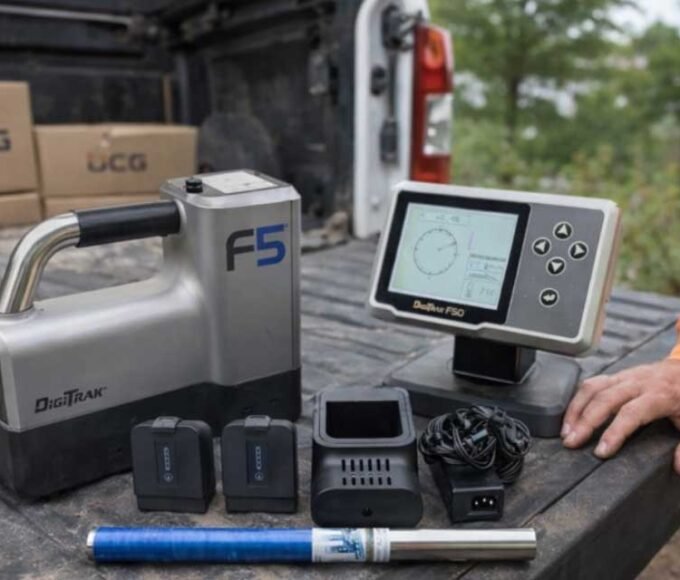STEM education-Science, Technology, Engineering, and Math-is very important for the jobs of the future. But how can we make these subjects fun and exciting?
That’s where playful robotics comes in! It’s a fun way to help kids learn STEM by using robots and hands-on activities. When learning feels like play, students understand tricky ideas more easily and also build important skills like being creative and solving problems.
With cool activities and robot kits, kids can explore new ideas and discover how much fun learning can be. This article shows how playful robotics helps kids enjoy STEM while getting ready to become the inventors of tomorrow! Keep reading.
The Importance of STEM Education
In our technology-driven world, STEM education is vital. Employment in STEM occupations is projected to grow. This is significantly faster than the average for all occupations.
Moreover, students who participate in STEM curriculums are more likely to succeed academically overall. Incorporating playful robotics into this equation not only helps students grasp the fundamentals of coding, mechanics, and design, but also serves to ignite a keen interest in these fields.
Why Playful Robotics?
Playful robotics is a fun way for students to learn by doing. When kids build and program robots, they get to see how lessons work in real life. This hands-on learning keeps them interested and helps them stay focused.
As they work through challenges, they learn to think carefully, solve problems, and come up with creative ideas. Many robotics projects are done in groups, so students also learn how to be good teammates. These skills like thinking, solving problems, and working with others are important for school and future jobs.
Creativity and Problem-Solving in STEM Education
Creativity is often deemed a soft skill. However, in the realm of STEM education, it is equally critical. The ability to think outside the box leads to pioneering solutions that can change the world.
In robotics, problem-solving is a daily task. Students face design challenges and must troubleshoot issues that arise during their projects. This not only builds resilience but also enhances their analytical skills.
The Role of Robotic Kits
Integrating robotic kits into the classroom opens up a world of possibilities. These kits provide students with the necessary components and instructions to create functioning robots.
Many of them offer a variety of themes. It encourages children to immerse themselves in different scenarios, such as building a robot to sort objects or one that can navigate an obstacle course. As students manipulate various designs, they enhance both their conceptual understanding of STEM and their abilities to innovate.
Hands-On Learning Experiences
One of the most significant benefits of playful robotics is the ability to learn through hands-on experiences. Educational philosophy has long supported the notion that active learning greatly enhances comprehension and retention. By engaging in projects that require them to design, build, and program robots, students can relate complex concepts to real-world applications.
Coding Fundamentals
Robotics exposes students to coding from an early age. Every robot needs programming to perform tasks. This introduces children to the basics of coding.
Many learning platforms offer kid-friendly programs that teach coding logic through interactive play. As students program their robots, they learn about sequences, loops, and conditionals. This is a fundamental coding concepts that apply across various programming languages.
Encouraging Lifelong Learning
STEM education through playful robotics not only focuses on immediate learning outcomes but also instills a love for continuous learning. When students engage hands-on, they often discover a passion for STEM topics that can last a lifetime. This intrinsic motivation is vital as they transition to higher education and further into professional careers.
Connecting with Real-World Applications
When students learn with robots, they can see how STEM subjects like science, technology, and math are used in real life. For example, when they program a robot to do a job, it’s like what real engineers do every day.
This helps students understand that what they learn in school can be used to solve real problems in the world. It connects what they learn in class to what people do at work.
The Future of STEM Education
As STEM learning becomes more important, schools are changing the way they teach. Adding robots to the classroom helps students get ready for future jobs and teaches them to think in smart, creative ways.
To make this happen, schools need the right tools like robot kits, teacher training, and help from tech companies. These things can help students learn better and become the problem-solvers of tomorrow.
Industry Collaborations
When schools work together with tech companies, students get to see how what they learn in class is used in real life. By teaming up with robotics companies, schools can give kids a chance to join workshops, see cool robot demos, or even try internships when they’re older.
These fun and hands-on experiences help students understand science and technology better. This can help them imagine a future job in a STEM career.
The Role of Parents and Educators
Parents and educators play a vital role in fostering an environment where playful robotics can flourish. Encouraging students to engage with robotic kits at home can help reinforce concepts learned in school.
Additionally, parents can seek out community programs or workshops that promote robotics and STEM initiatives. This provides students with extra opportunities for hands-on learning.
Teachers must also advocate for playful robotics in their curriculum, seeking professional development to integrate these practices effectively. School districts can invest in training educators, ensuring they are equipped to guide students through the challenges of robotics and STEM projects.
Embracing Playful Robotics in STEM Education
Adding playful robotics to STEM education makes school more fun and exciting. It helps kids be more creative, solve problems, and work well with others. These are important skills for the future, especially as science and technology become a big part of many jobs.
Learning this way helps students get ready to become great problem-solvers and inventors. Teachers and parents can use learning tools, robot kits, and fun new ways of teaching to help kids grow into smart and curious thinkers.
For more technology and innovation tips, check out our blog posts.
















